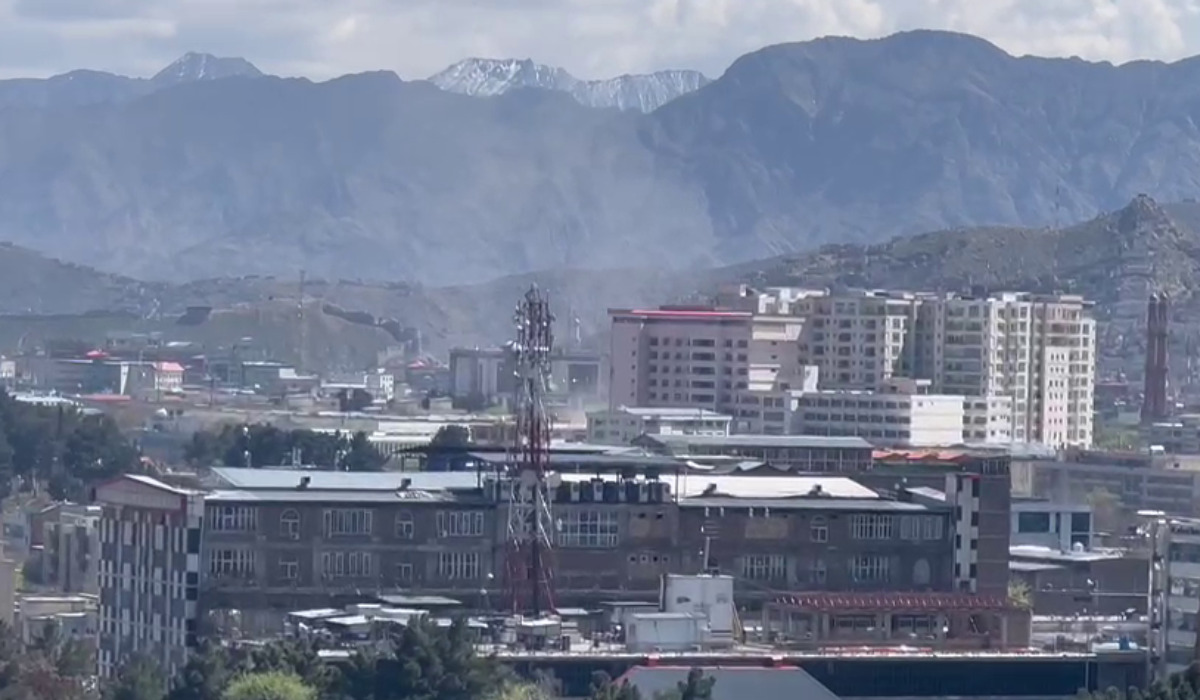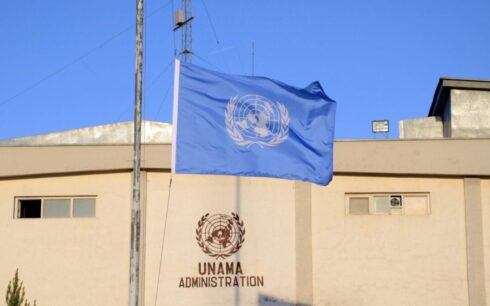Despite the Taliban’s repeated denials of IS-K (Daesh) existence in Afghanistan, the group has clashed with the ISIS-affiliate at least eight times over a 23 day period – between March 3 and March 26 this year.
In these clashes, both sides have suffered casualties, yet the Taliban deny their existence and blame the US for exaggerating the issue.
However, data gathered from Taliban-run Twitter accounts shows that the group has carried out at least eight attacks on Daesh hideouts in Kabul, Herat, and Balkh provinces in the past few weeks.
In addition, IS-K carried out seven attacks on the Taliban.
On March 9, a suicide bomber killed Mohammad Daud Muzammil, the Taliban’s governor for Balkh province, in Mazar-e-Sharif, the provincial capital. In a reprisal attack, the Taliban on Sunday claimed that they killed three key ISIS leaders – including Shadow governor for Khorasan Mawlawi Ziauddin; IS-K member Abu Omar Afridi; and a military trainer and bomb-making expert Salman Tajikistani – during a raid in Mazar-e-Sharif.
Reacting to this news, Zalmay Khalilzad, Washington’s former peace envoy for Afghanistan, said in a series of tweets that if the Taliban’s claims are confirmed Washington must increase engagement with the Taliban.
“If confirmed, this would be a significant blow to IS-K in northern Afghanistan. The Taliban had committed in the Doha Agreement to fight IS-K. The removal of these ISIS leaders indicates that it is doing so,” Khalilzad said.
“The US and Taliban should increase engagement to complete implementation of the Doha Agreement which serves Afghan and US interests,” he tweeted.
In response to Khalilzad’s tweets, former Taliban spokesman for the group’s interior ministry Saeed Khosty wrote on his Twitter account that “ISIS is an American project” and that Washington is campaigning for the group.
“There is no agreement on the fight against ISIS in the Doha agreement,” Khost said.
Last week, a top US military general meanwhile said that Daesh has a stronger presence in Afghanistan than it did a year ago.
General Michael Kurilla, the commander of US Central Command (CENTCOM), told the US House Armed Services Committee on Thursday that “ISIS (Daesh) is stronger today in Afghanistan.”
“ISIS is a global organization. They have an organization called the Al-Siddiq office that is responsible for all of ISIS from Kazakhstan, Afghanistan, Pakistan, India, all the way down to Indonesia,” Kurilla said.
“They do communicate back and forth with the head of ISIS, the global affiliate,” he added.
According to the CENTCOM commander, around 6,500 Daesh fighters are in Afghanistan of which 4,000 militants have been stationed across from the Tajikistan border.
Taliban’s spokesman Zabihullah Mujahid, however, said that the statement is “untrue” and that the number of Daesh fighters in Afghanistan has “already been reduced in ranks and suppressed.”
Meanwhile, Mujahid also accused the US of exaggerating the situation around Daesh in Afghanistan, stating: “The interest of the US officials in this matter and their grandiosity is aiding and abetting the ISIS (Daesh) insurgents, which should be stopped.”
On January 12, the Taliban defense ministry in a letter, a copy of which was seen by Amu TV, told the group’s border forces that around 7,000 ISIS members were expected to enter Afghanistan from Pakistan. According to the letter, these militants, led by a person named Muslim Kotwal, had received “extremist training” in the Korm area of Pakistan.
Despite the Taliban’s denials of Daesh being a threat, Afghanistan’s neighbors also perceive the group to be a matter of concern. As such, national security advisers (NSA) and top security officials of the Shanghai Cooperation Organisation (SCO) will discuss the security situation in the country at their SCO security officials’ meeting scheduled for Wednesday, March 29.
In the context of Afghanistan, the security officials are expected to assess the threat posed by IS-K. This comes ahead of the SCO defense ministers meeting in April and the foreign ministers meeting in May.
These meetings will culminate in the SCO Summit to be held in July in India.





